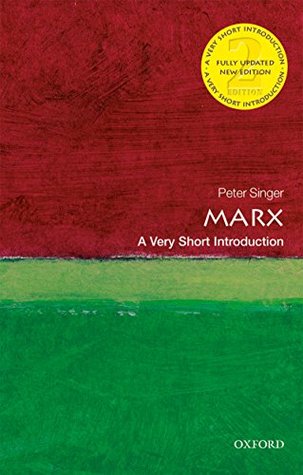More on this book
Community
Kindle Notes & Highlights
by
Peter Singer
Read between
July 29 - August 1, 2020
It has been claimed—by Lenin among others—that Marxism is a scientific system, free from any ethical judgements or postulates. This cannot be correct. Marx did not just predict that capitalism would be overthrown and replaced by communism; he judged the change to be desirable.
Once communism has been established and classes have disappeared, however, we will pass beyond class morality, to what Engels called ‘a really human morality’.
Communism would differ from all previous societies in that there would be no false consciousness. False consciousness involves failing to see things as they really are. It comes about because a society’s superstructure can conceal the real basis of the society.
Class morality adds an extra layer of false consciousness, leading the worker to believe that, for example, the capitalist has a moral right to the proceeds of his investment. In a communist system of production there would be no exploitation to be concealed. Everything would really be as it appeared to be. Moral illusions would crumble
More than a century after Marx made these predictions, most of them are so plainly mistaken that one can only wonder why anyone sympathetic to Marx would attempt to argue that his greatness lies in the scientific aspects of his work.
Scientists test their theories by drawing predictions from them, and then checking whether the predictions are accurate. A scientific theory that yielded predictions as far astray as Marx’s predictions would have to be abandoned, or at a minimum, heavily revised. It is better to think of Marx as a philosopher—in the broadest sense—than as a scientist.
As a philosopher, Marx’s work endures. It has altered our understanding of our history and our social existence, and deepened our grasp of what it is to be free.
Rural areas are typically more conservative than urban areas, and rural landholders stood to lose a great deal from the abolition of private property. It is not surprising, therefore, that communism could only be imposed on Russia with the use of considerable force and, when resistance appeared, increasing brutality that led to the murder and incarceration of millions of people.
Marx saw that capitalism is a wasteful, irrational system that controls us when we should be controlling it. That insight is still valid; but we can now see that the construction of a free and equal society is a far more difficult task than Marx realized.
China’s prosperity has come at the cost of a distribution of income that is far less equal than that of the United Kingdom or indeed any nation in Europe, and less equal even than the income distribution of the United States—something else that seems incompatible with the kind of society Marx envisaged.
Universal free education, public housing, unemployment benefits, pensions for the elderly and disabled, and, in every affluent nation except the United States, universal health insurance, have done more to reduce human suffering than even the most benign attempts to introduce communism.


